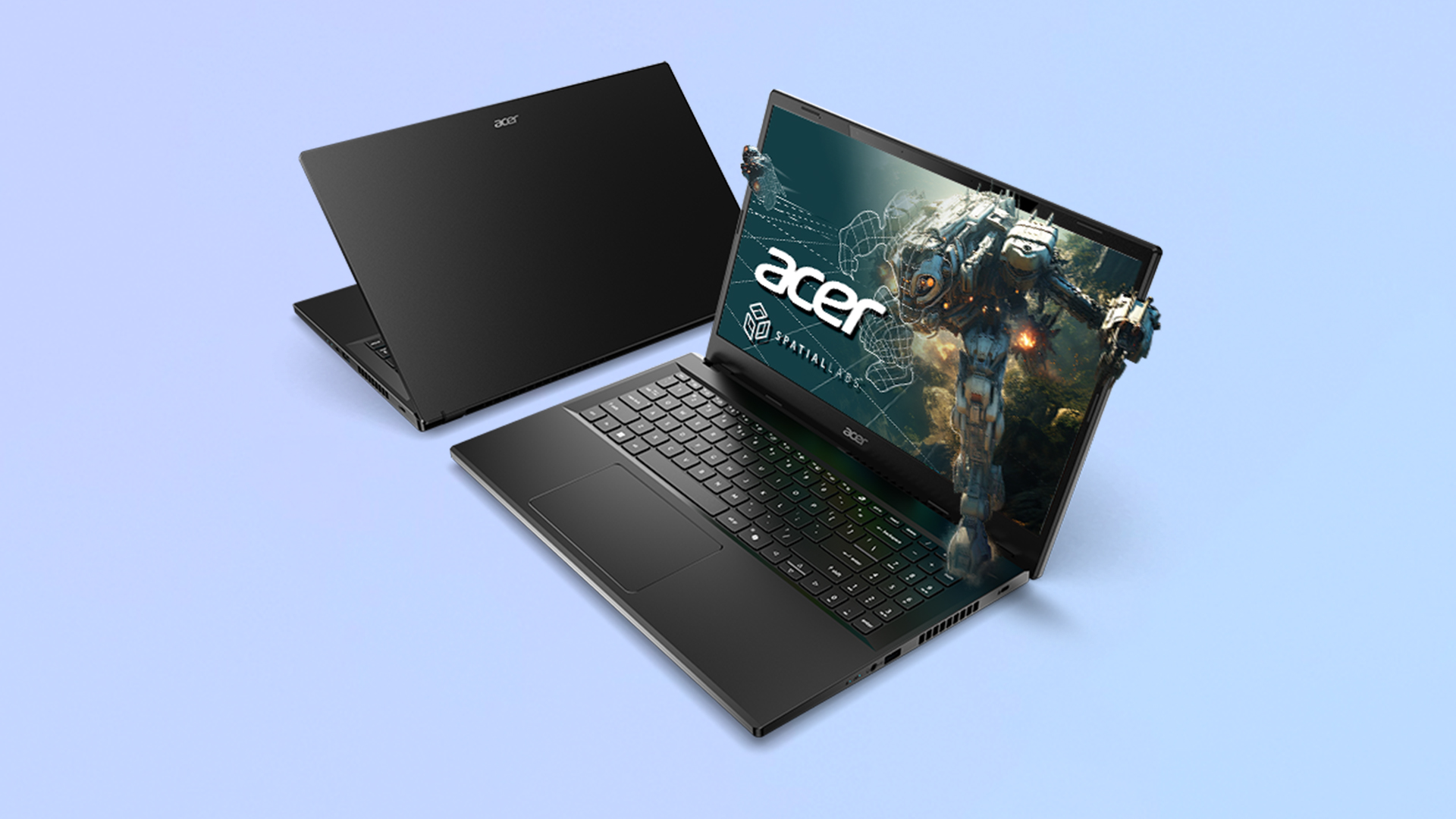Acer just announced the cheapest glasses-free 3D laptop ever at CES 2024 — wait, this is still a thing?
We thought 3D laptops had gone the way of 3D TVs — Acer disagrees

Acer is the only large laptop company to bring stereoscopic 3D back to CES 2024, and it’s done so in a big (and rather inexpensive) way with the Acer Aspire 3D 15.
Launching in March at a starting price of $1,399, this does make the SpatialLabs tech more accessible to a wider audience. However, I find myself asking the same question as I did over the past several years of seeing this trend come to life: what’s the point?
I mean, there’s a reason why the likes of Asus have dropped their 3D ambitions, and I think it comes down to a struggle to actually figure out what it’s useful for.
How does SpatialLabs work?

For any stereoscopic 3D to work, you need two things: a screen resolution high enough to duplicate the on-screen picture with good enough clarity, and some way to track the user’s eyes to create the effect.
That’s exactly what Acer delivers with a 15.6-inch 4K IPS panel. The 3D picture you’ll see is 1080p, as this single display will do double duty — paired with a pair of stereoscopic cameras up above the display to track your eyes.
This will give you the full 3D illusion, which in hands-on time with this technology over the past couple of years, I can confirm is rather fun to use. The use cases are rather limited, but to see 2D designs in a new dimension via Model Viewer or watch 3D content on YouTube is pretty swish.
Acer Aspire 3D 15 specs: What you need to run 3D
Under the hood of the Acer Aspire 3D 15, you’ll find an Intel Core i7-13620H CPU and up to an Nvidia GeForce RTX 4050 Laptop GPU. Now, I know a few of you probably looked at that processor with a raised eyebrow. Why not run Meteor Lake?
I’m not entirely sure whether this is a cost-cutting exercise on Acer’s behalf, but there could be some things that may suffer because of it — namely the speed of the company’s proprietary AI models that transform 2D content to 3D in real-time.
On top of that, you’ll also see the dedicated Copilot key on the board below, which Intel Core Ultra has been built to improve the speed of. If you’ve been using Microsoft’s AI assistant on a system without a built-in NPU, you’ll know that it can get a bit sluggish. We won’t know for sure whether this is the case with the Aspire 3D 15, but spec signs point to a similar experience.
Are 3D laptops actually needed?

Don’t get me wrong — this 3D technology is cool, and pricing it at just shy of $1,400 is making the technology all the more accessible. From the times I’ve dabbled with Acer’s implementation of glasses-free 3D, I’ve had fun with it, and I know you would too.
But when we get cool ideas in the laptop space, they need to be backed up with real-world usability. For example, dual-screen laptops sound a little outlandish on paper, but having a multi-monitor workstation wherever you are is a godsend for productivity.
And outside of viewing 3D models or utilizing Acer’s AI models to transform 2D content into 3D (which are all fun to do), I struggle to see the use cases being valid enough to warrant this. Especially since for the same price, you can pick up the Acer Swift X 14 with a vastly more powerful GPU, the latest Intel Core Ultra chipset and that gorgeous 2.8K OLED display.
So it’s great to see SpatialLabs come down to a far more affordable price point, but for the sake of watching stuff pop out of the screen, I’m not really seeing the benefits to CAD designers and animators in quite the same, optimistic way as Acer is.
I’ll find out for sure when I go eyes-on with the Acer Aspire 3D 15 later this week at CES.
Check out our CES 2024 hub for all the latest news from the show as it happens. Follow the Tom’s Guide team in Las Vegas as we cover everything AI, as well as looking at the best new TVs, laptops, fitness, wearables, and smart home gadgets at the show.
And be sure to check out the Tom's Guide TikTok channel for all the newest videos from CES.
More from Tom's Guide
- Razer changes the OLED game at CES 2024 — world’s first 240Hz display packed into refreshed Blade 16
- Dell announces new XPS 13, XPS 14 and XPS 16 with Core Ultra power and controversial design
- LG’s latest OLED gaming display can hit an insane 480Hz — without dropping to 1080p
Sign up to get the BEST of Tom's Guide direct to your inbox.
Get instant access to breaking news, the hottest reviews, great deals and helpful tips.

Jason brings a decade of tech and gaming journalism experience to his role as a Managing Editor of Computing at Tom's Guide. He has previously written for Laptop Mag, Tom's Hardware, Kotaku, Stuff and BBC Science Focus. In his spare time, you'll find Jason looking for good dogs to pet or thinking about eating pizza if he isn't already.










